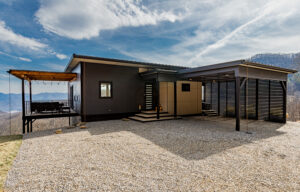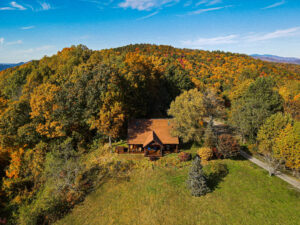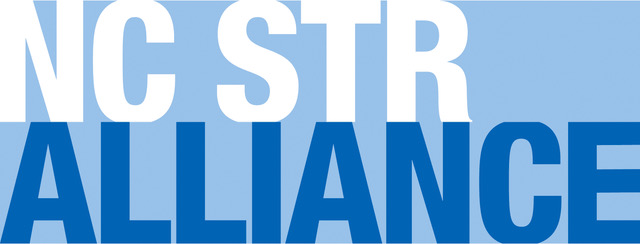Buncombe STR Ban Update
As of July 1st, we have heard no news on the proposed STR regulation for Buncombe County. At the April 22, 2024, Planning Board Public Hearing, the board voted to defer any action on STRs for 100 days or until July 31st. Since then, the board has canceled the May meeting, didn’t mention STRs at the June meeting, and canceled the July meeting. The next meeting of the Planning Board is on August 19th, 2024. We have heard from the staff at Buncombe County Planning that they have “moved on to other issues.” Our group continues to monitor this situation and will notify our members if we hear any news.
Weaverville STR Update
On June 24th, 2024, the Weaverville Town Council voted to delay adopting the STR regulations proposed by the planning board. Ultimately, the consensus among Council members was that more time and discussion was needed before adopting any new rules.
Those discussions will next occur at a joint Town Council-planning board workshop on August 20th. We hope that many of you can attend. In the meantime, we again encourage to reach out to planning board and Town Council members to express your support for continued discussions to come up with reasonable regulations, but not bans on use of a property as a STR.
By Ron Bekkerman, Maxime C. Cohen, Edward Hung, John Maiden and Davide Proserpio
It’s well-know that one of the downsides of short-term rentals (STRs) is that they can reduce the availability of housing for long-term residents, this driving up both rents and house prices for locals. In a previous study, we found that home-sharing through Airbnb alone is responsible for about 20% of the average annual increase in U.S. rents, leading many policymakers to take an understandable aggressive approach to regulating STRs. For example, New Your City has made it outright illegal to rent an apartment for fewer than 30 days in most buildings.
However, while this short-term impact is well established, the longer-term impact of the last decade’s boom in STRs is less clear. Could the immediate harm of services like Airbnb to the local economy be offset or even outweighed by the long-term increase in demand they create?
Click here to read more

The travel industry is a powerful economic force, but where does the money land? Often, large hotel chains and resorts capture a significant chunk of tourist dollars, leaving local businesses struggling. Short-term rentals (STRs), however, offer a compelling alternative that can empower local communities and enhance the visitor experience.
Headlines might paint a picture of short-term rentals as disruptive forces, but the reality is far more nuanced. Let’s explore how STRs can actually revitalize communities and spread the wealth of tourism more evenly.
Beyond the Big Brands: Empowering Local Businesses
Imagine a visitor staying in a charming downtown Asheville apartment, not a sprawling resort complex. They wake up, brew coffee in a fully equipped kitchen using locally roasted beans from a nearby shop. They head out for breakfast at a quaint cafe, then explore a farmers market brimming with fresh produce and handcrafted souvenirs. Every step of the way, their tourist dollars directly support local entrepreneurs and inject vibrancy into the community.
Showcasing Local Charm: Unique Experiences for Travelers
Short-term rentals often reside in neighborhoods, not isolated tourist zones. This allows visitors to experience the true essence of a place. They can stay in a historic townhouse, a cozy cabin nestled in the woods, all offering a unique perspective on the destination. This fosters a deeper connection with the local culture and encourages exploration beyond the usual tourist traps.

Preserving Local Character and History
Many short-term rentals are beautifully restored historical buildings or charming bungalows. By providing an income stream for property owners, STRs can prevent these structures from falling into disrepair or demolition. This fosters a sense of place and allows visitors to appreciate the architectural heritage of a community.
Building Bridges, Not Walls: Fostering Positive Community Interactions
Responsible short-term rental platforms encourage good neighbor policies. This includes clear communication and expectations for guests, ensuring respectful interactions with residents. Additionally, some STR owners choose to live in a portion of their property while renting out another, fostering a sense of community and cultural exchange between visitors and locals.
Finding the Right Balance: Responsible Regulations
Of course, with any growing industry, responsible regulation is key. Collaboration between local governments, short-term rental platforms, and communities can establish guidelines that ensure a positive experience for everyone. This might involve regulations on noise levels, or clear communication channels for addressing concerns.
Short-term rentals are not a silver bullet, but they offer a powerful tool for fostering vibrant, economically thriving communities. By supporting local businesses, showcasing hidden gems, and preserving character, STRs can create a win-win situation for both visitors and residents. So next time you travel, consider a short-term rental. You might just discover a hidden gem and contribute to a community that thrives on the spirit of exploration. For more information on how we at NC STR Alliance can assist, please contact us by clicking here.


